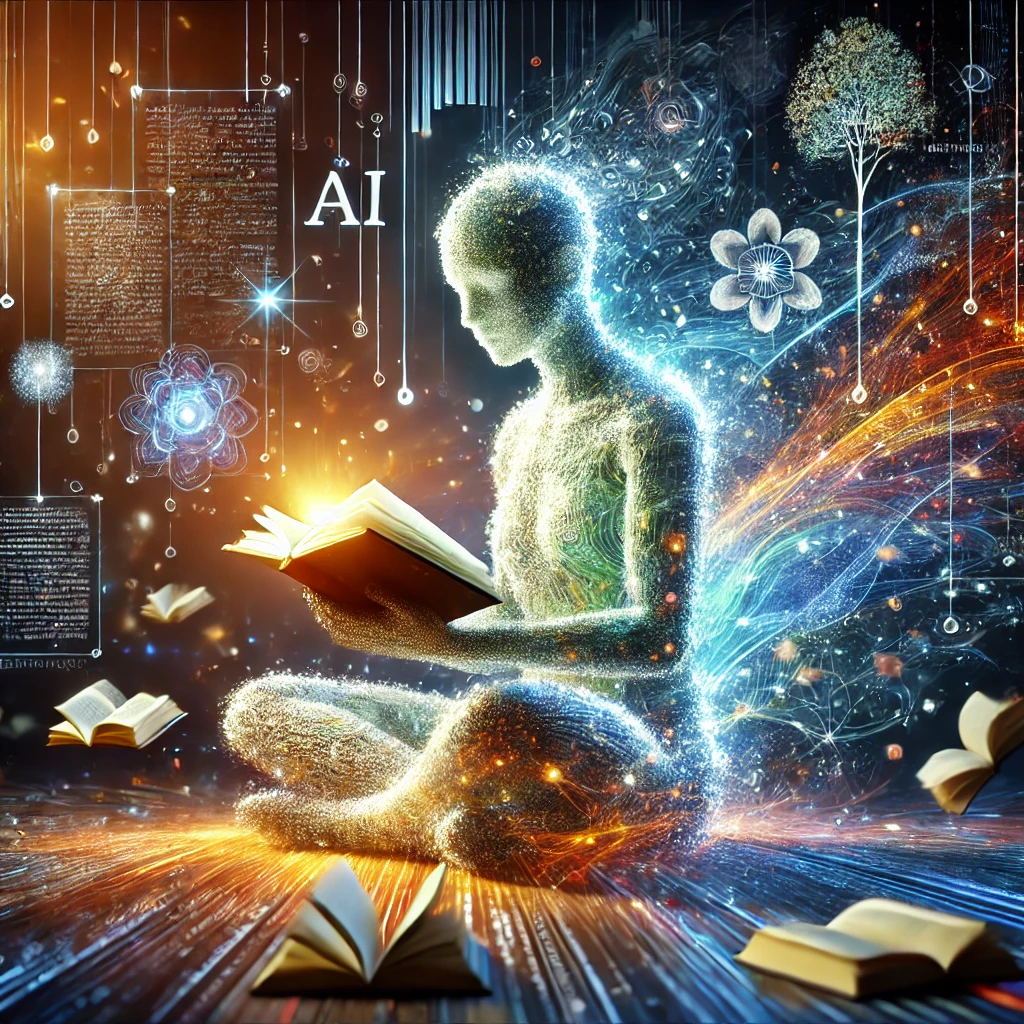The Rise of AI-Generated Content
Artificial Intelligence (AI) and Large Language Models (LLMs) like ChatGPT have revolutionized content creation. From generating articles to aiding in research, AI tools are reshaping how information is produced and consumed. But what does this mean for the future of reading? This fifth installment explores the opportunities and challenges AI-generated content brings to literacy, critical thinking, and engagement with the written word.
Opportunities Offered by AI in Reading
AI tools have the potential to enhance reading habits and literacy through various applications:
Access to Personalized Content
- AI can curate reading lists based on an individual’s interests, reading level, and preferences, making it easier to discover new material.
- Personalized summaries or recommendations can encourage hesitant readers to engage with texts they might otherwise avoid.
Breaking Barriers to Knowledge
- AI-generated translations make global literature accessible to more readers, breaking down language barriers.
- Summarization tools allow readers to grasp the essence of dense or complex material quickly.
Enhanced Accessibility
- AI can create text-to-speech, audiobooks, or even simplified versions of texts for readers with disabilities or those who struggle with traditional formats.
Interactive and Immersive Experiences
- AI-powered storytelling platforms can create dynamic, interactive reading experiences, blending traditional narrative structures with modern engagement techniques.
Challenges of AI-Generated Content
While AI offers many benefits, it also presents unique challenges that could impact reading and literacy negatively:
Overreliance on Summaries
- With AI tools summarizing books and articles, readers may rely on shortcuts rather than engaging deeply with the original material, risking superficial comprehension.
Proliferation of Low-Quality Content
- AI makes it easier to flood the internet with poorly written, unverified, or misleading material. Readers must develop strong critical thinking skills to discern credible sources.
Erosion of Authenticity
- Readers may find it challenging to connect emotionally with AI-generated texts, which can lack the nuance and depth of human-authored works.
Impact on Creative Industries
- Widespread use of AI in content creation could diminish the perceived value of human authorship, affecting how readers value and engage with traditional literature.
AI’s Role in Education
In educational settings, AI tools are becoming increasingly prevalent, offering both advantages and concerns:
Supporting Literacy Development
- AI can assist teachers in identifying struggling readers and tailoring interventions to meet their needs.
- Gamified apps powered by AI can make reading fun and interactive, encouraging reluctant readers to participate.
Risk of Over-Dependence
- Students relying too heavily on AI tools for summarization or analysis may miss out on developing their own critical reading and comprehension skills.
Striking a Balance
The integration of AI into the world of reading does not have to be a zero-sum game. By leveraging its strengths while mitigating its drawbacks, AI can complement traditional reading rather than replace it.
Promoting Critical Engagement
- Encourage readers to use AI tools as a starting point, supplementing them with deeper engagement with original texts.
Fostering Media Literacy
- Educating readers on how to evaluate the quality and credibility of AI-generated content can empower them to navigate the digital landscape more effectively.
A New Era for Readers and Writers
As AI and LLM-generated content becomes more prevalent, both readers and writers must adapt to this new reality:
For Readers
- Embrace AI as a tool to enhance reading experiences, but remain vigilant about the quality and authenticity of the material.
- Use AI to explore new genres, authors, and topics, expanding horizons rather than narrowing them.
For Writers
- Blend AI tools with human creativity to produce compelling, authentic, and engaging content that resonates emotionally with readers.
The Future of Reading in an AI-Driven World
AI and LLMs are reshaping how we interact with the written word, presenting both opportunities and challenges. By fostering critical thinking, promoting media literacy, and integrating technology thoughtfully, we can ensure that reading remains a vital, enriching activity in an AI-driven world. The key lies in balance: embracing the benefits of AI without losing the depth, creativity, and connection that define the human experience of reading.
Disclaimer:
This multi-part series on the decline of reading was created with the assistance of AI technology. While the content reflects thoughtful research and structured analysis, it was developed collaboratively using AI tools to ensure accuracy and efficiency. Readers are encouraged to engage critically with the material and view it as part of an ongoing conversation about the evolving role of reading in society.
